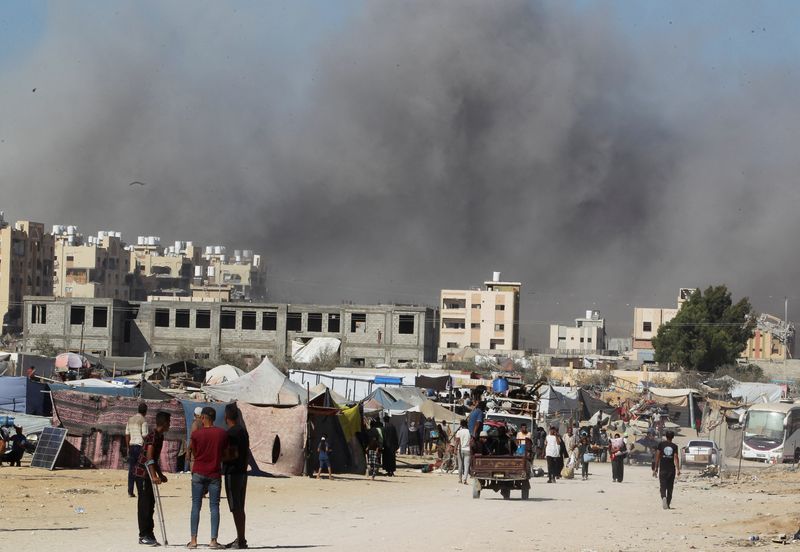By Steven Scheer
JERUSALEM (Reuters) - Israel's economy grew less than expected in the second quarter of 2024, extending a period of volatility since the start of war in Gaza, but the weakness is likely not enough to prompt a central bank rate cut next week given rising inflation.
The Central Bureau of Statistics said in an initial estimate on Sunday that gross domestic product (GDP) grew by an annualised 1.2% in the April-June period, below a Reuters consensus of 4.4%. On a per capita basis, GDP fell 0.4% in the quarter.
Overall growth was led by gains in consumer spending (12%), investment in fixed assets (1.1%) and government spending (8.2%), offsetting an 8.3% decline in exports.
First-quarter GDP was revised to 17.3% annualised from a prior estimate of 14.4%, bouncing back from a contraction of 20.6% in the fourth quarter of 2023.
The war has raged in Gaza since the Oct. 7 cross-border attack on southern Israel by Hamas-led Palestinian militants.
Over the first half of 2024, Israel's economy grew 2.5% at an annual rate versus 4.5% in the same period in 2023, according to the statistics bureau.
"The economy is having difficulty recovering from the war, mainly because of supply and not demand problems," said Leader Capital Markets Chief Economist Jonathan Katz.
He noted that the lack of Palestinian workers since the Gaza conflict erupted was preventing a full recovery in investment in residential construction.
Figures issued on Thursday showed a spike in the inflation rate to 3.2% in July from 2.9% in June, pushing it above the government's annual inflation target of 1-3%.
The Bank of Israel next decides on rates on Aug. 28.

After cutting its benchmark interest rate in January, the central bank left the rate unchanged at subsequent meetings in February, April, May and July, citing geopolitical tensions, rising price pressures and looser fiscal policy due to the war.
"Since the weak growth figures stem from supply and not demand issues, they are not expected to support interest rate cuts, in particular against the background of signs of acceleration in inflation in the July CPI and a high level of geopolitical risks," Katz said.